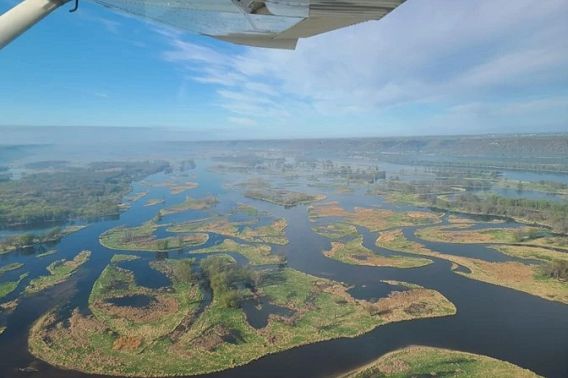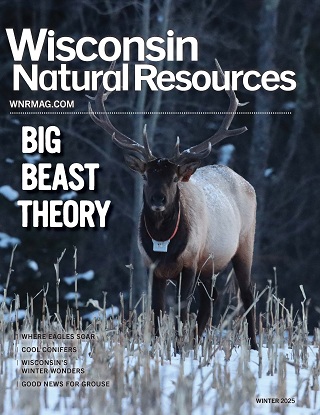Contact: DNR Office of Communications
DNRPress@wisconsin.gov
Spring Surveys Show Mixed Results For Ruffed Grouse, Pheasant And Waterfowl
 The DNR observed average to above-average wetland conditions across the state for the spring survey.
Photo credit: Wisconsin DNR
The DNR observed average to above-average wetland conditions across the state for the spring survey.
Photo credit: Wisconsin DNR
MADISON, Wis. – The Wisconsin Department of Natural Resources (DNR) today announced that data is now available from annual spring surveys of Wisconsin ruffed grouse, pheasant and waterfowl.
The spring waterfowl breeding survey indicated stable population numbers and habitat conditions for migratory birds. In contrast, the spring surveys showed ruffed grouse and pheasant counts below the 5-year average, including an 11% decrease statewide in ruffed grouse drumming activity from 2022.
The decreases observed in the ruffed grouse and pheasant populations in this year's surveys were not unexpected.
“We are entering the down phase of the 10-year abundance cycle,” said Brian Dhuey, DNR Wildlife Surveys Specialist. “It is likely we will continue to see some declines in abundance in the coming years before we start to see increases, with the peak of the next cycle likely coming around 2029, 2030 or 2031. While the number of birds detected is down overall, there will still be pockets of good ruffed grouse abundance, although these areas will be fewer and harder to find this fall.”
Pheasant populations are also down relative to historic averages. The department reported the 2023 average pheasant observations at 0.46 pheasants per stop, similar to 2022’s average of 0.47 pheasants per stop. The count remains below the most recent 5-year average of 0.55 pheasants per stop. While pheasant numbers are down statewide, abundance was markedly higher in the northwestern part of Wisconsin’s pheasant range than in the central or southeastern portions.
Similarly, wood duck populations decreased from 2022, although populations remain above the long-term average. The survey team also reported average to above-average wetland conditions across the state during the survey period.
Surveyors estimated the state’s breeding duck population at 545,065 birds, a 3.5% decrease from the 2022 estimate, yet 23.4% over the long-term average. Canada goose numbers are also slightly lower than 2022 yet remain 58.4% higher than the long-term average.
Conversely, The DNR’s annual breeding waterfowl survey showed stable numbers for mallards and blue-winged teal, two of the state’s primary breeding waterfowl. Highly pathogenic avian influenza (HPAI) has not shown any measurable impacts this year on waterfowl populations at a statewide or continental scale, and we had excellent nesting conditions immediately after the survey. The dry conditions during the brood rearing period have not seemed to negatively impact brood success based on staff feedback.
Find these and other wildlife survey reports on the DNR’s Wisconsin Wildlife Reports webpage.
Unique Event For Wisconsin Waterfowl Hunters
For those interested in waterfowl, the DNR is once again partnering to host the Waterfowl Hunters Expo on Aug. 26, 2023, at the Sunnyview Expo Center in Oshkosh.
The Waterfowl Expo’s one-of-a-kind experience is open to waterfowl hunting enthusiasts of any age. The expo will feature hands-on exhibits for attendees to try and buy the latest in outdoor products and presentations from industry experts, habitat managers and waterfowl scientists. The event is family and dog-friendly, setting the stage for hunters to come together and experience everything waterfowl.
The Waterfowl Expo is also the new home of the state Waterfowl, Turkey and Pheasant stamp competition, as well as the state duck and goose calling contests.
More event and ticket information is available on the Waterfowl Hunters Expo website.

